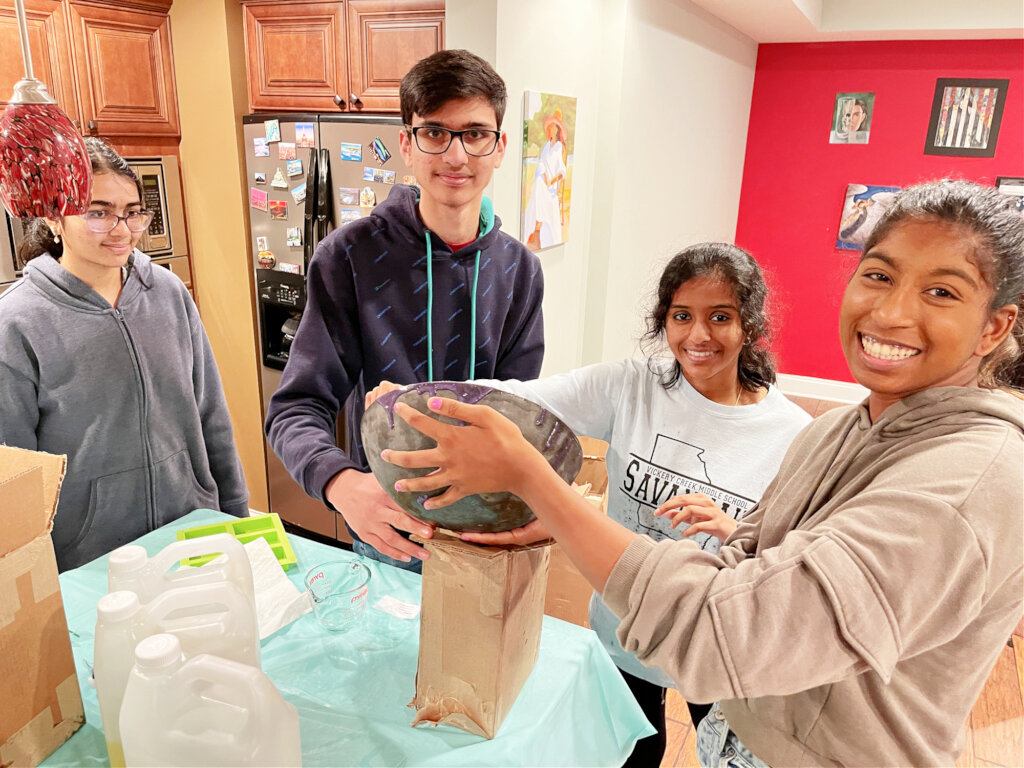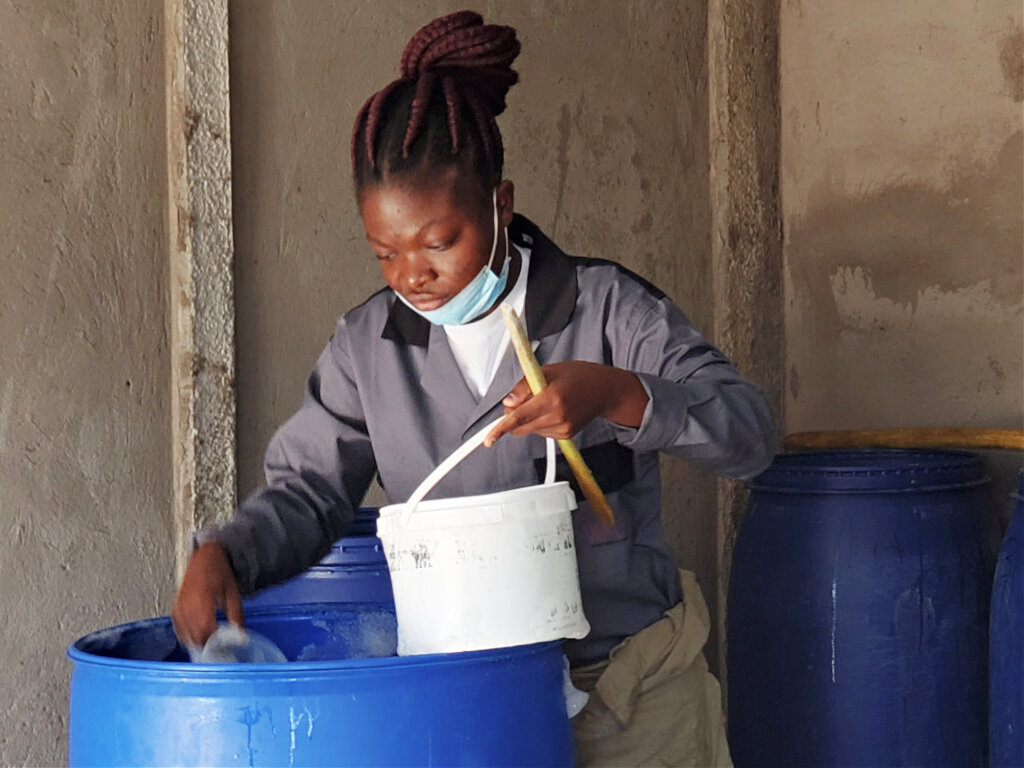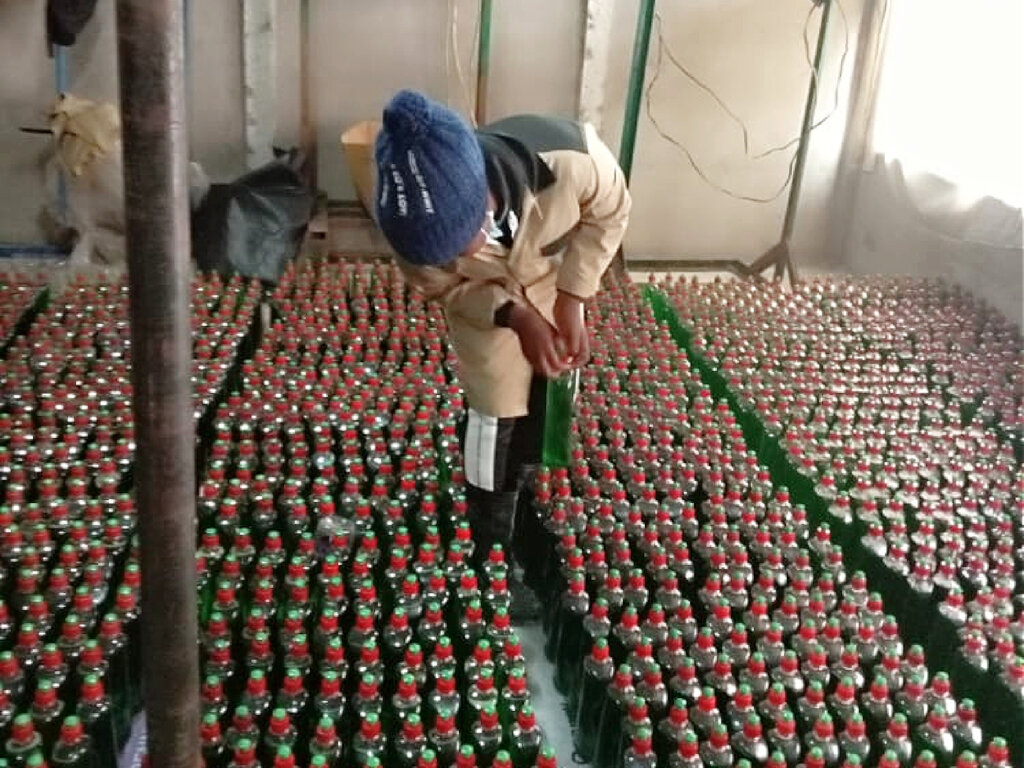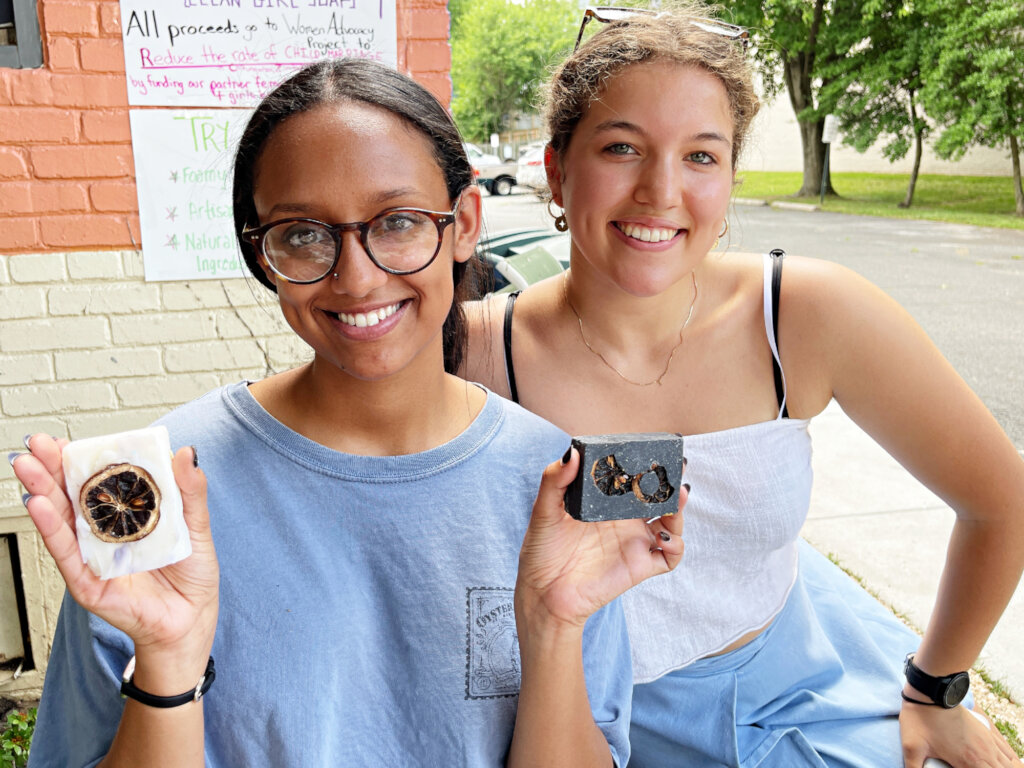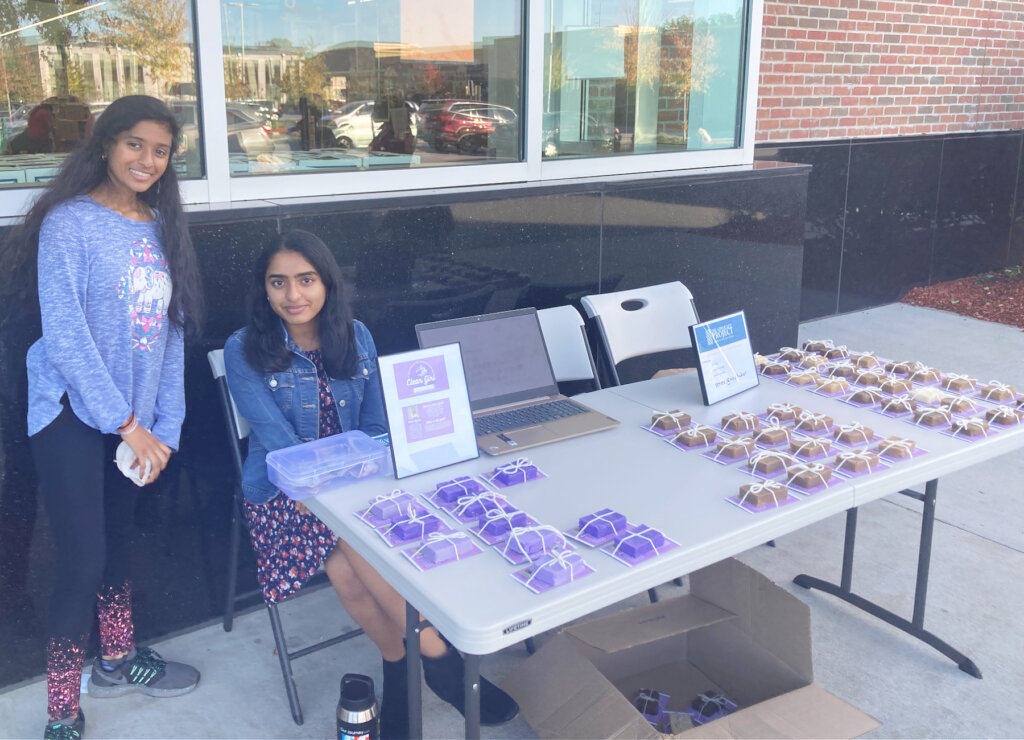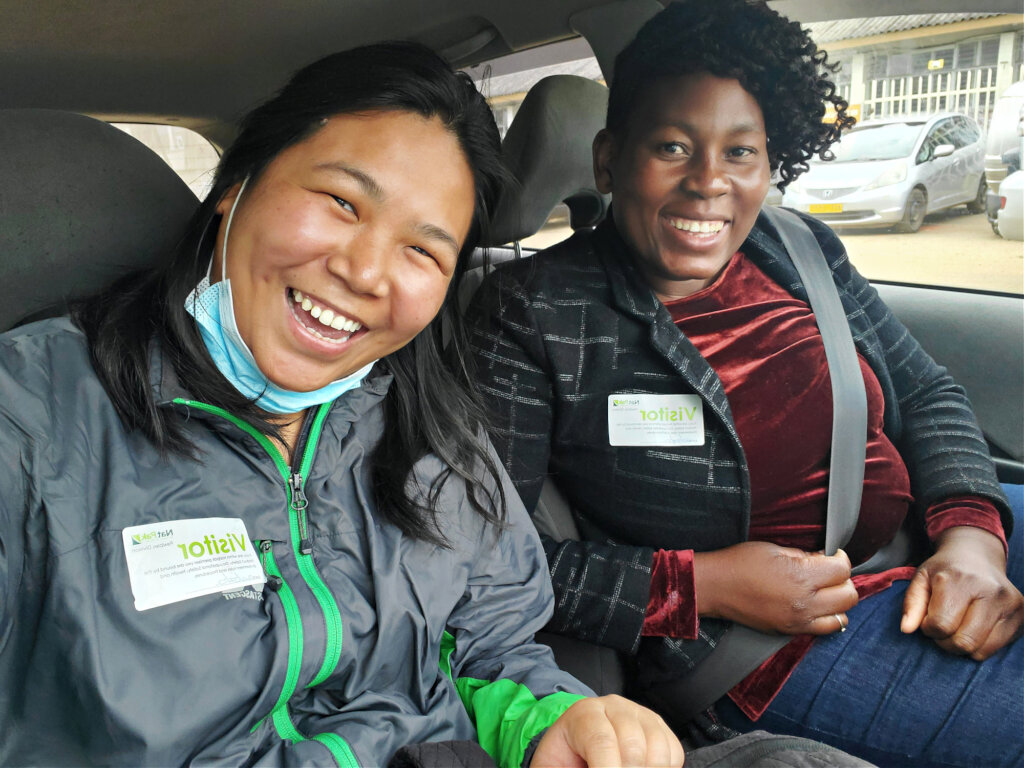By Iain Guest | Project Coordinator in the US
This report is being sent to sixty friends who have donated $6,512 to our GlobalGiving appeals on behalf of the Women Advocacy Project (WAP) in Zimbabwe.
This is report #22, so you should be familiar with WAP’s program to help girls make soap by now! But there is always something new to report, and this time it is special. Over the past year, two groups of high school students in the US have raised money for the program in Zimbabwe by making and selling their own soap. This has enabled thirty-one members of the soap-making team in Zimbabwe to re-enter school. They enrolled this past week.
It’s a spectacular way to start the new year and say goodbye to a pandemic that has devastated education in Africa. The US soap sales have also raised the morale of the young soap-makers in Zimbabwe, who sold over 18,000 bottles of soap last year and are aiming for 32,000 bottles in 2023.
How has it happened? We’ll explain in this report.
*
First, a short recap.
WAP was founded in 2012 by Constance to curb child marriage, which affects about a third of all girls in Zimbabwe under the age of 18. She turned to soap in 2019 after it became clear that the main pressure on girls to marry young comes from poverty. We asked McLane, a graduate student from the Fletcher School at Tufts University, to spend the summer in Zimbabwe as a Peace Fellow and help.
Constance then followed the same time-honored path taken by so many successful entrepreneurs. First she checked out the competition and realized there was a market for all-purpose soap in the underserved neighborhoods of Harare. Helped by your donations, she then organized soap training for girls which – after some trial and error - produced a nice, thick, gooey, green substance. The girls came up with a catchy brand name, Clean Girl, and began to visit local stores, known as tuck shops.
Sales were picking up when the pandemic struck in early 2020 and temporarily halted production, but the girls didn’t miss a beat and distributed the unsold soap to needy families in their neighborhoods. WAP resumed production on a limited scale but cut back the number of soap-makers to four. Whatever soap was made was shared out among the rest of the girls to be sold locally. The girls kept half of the proceeds and gave the rest back to WAP, to be reinvested.
*
Meanwhile, soap-making was also getting under way in the US at two high schools in 2021. As in Zimbabwe, both teams went through the same process of trial and error.
The first group was from the Girl Up club at the Wakefield High School in Arlington, Virginia. They would meet over weekends and work outside on balconies and by the summer of 2022 they had made several batches of exotic-looking, aromatic-smelling soap with the same brand name (Clean Girl) that the girls use in Zimbabwe. In June 2022 they took their soap out on the streets of Arlington and raised a cool $682 for the Zimbabwe project.
Over the same period a second group of American high school students was also making soap in Atlanta, Georgia, under the direction of Nina, our youngest-ever Peace Fellow. Nina had signed up in 2021 to provide remote support to the Zimbabwe project, and she persuaded a group of friends at the South Forsyth High School to join her in making their own Clean Girl soap. The brand was catching on!
We visited Nina recently and found her team mixing and cooking in Nina’s basement. It was a cheerful occasion, even after the mixer broke and they had to resort to stirring spoons. Within thirty minutes they had produced a creamy lavender-colored mixture which was poured into cardboard boxes and left to set. Once hardened it would be carved up into blocks and sold outside local grocery stores.
Like the Arlington team, Nina’s group has made $600 from selling their soap and enjoyed every minute of it. As Nina told us: “We’ve had fun and learned a lot.”
*
While these heroics were underway in the US, the business in Zimbabwe has been thriving. No fewer than 220 girls have earned money from soap since 2019 and many lessons have been learned.
One lesson is that you do not need a degree from Business School to launch a business. In WAP's case, it started with a visionary leader (Constance) and investors like yourselves who funded the start-up in 2019. Other donors came on board in 2021 when it became clear that the business model was sound.
It continued with trial and error, with each stage producing improvements. As in Nina's basement, the soap was initially stirred by hand but in 2022 WAP purchased mechanical mixers and productivity soared.
Donors got into the spirit. One far-sighted donor – Rockflower – invested in a new factory which allowed WAP to produce and store thousands of bottles. Another donor, Action for World Solidarity in Berlin, paid for solar panels. The project also received good advice from Together Women Rise, another major investor. Could Clean Girl reduce plastic by recycling? The bottles themselves are too fragile to be used twice, but the caps are more sturdy and WAP now gives the girls a dollar for every 20 bottle caps they can recycle. So far the program has recycled 2,000 caps.
Dawa, our 2022 Peace Fellow from Texas A and M University, secured a vehicle through the Swiss embassy in Zimbabwe that has also increased productivity.
This has been North-South partnership at its best and most imaginative.
With the end of the pandemic, Constance has reorganized the workforce. She has hired the four girls who took on production during the pandemic and increased the incentives for the rest of the girls who do the selling. The bottles sell for $1.50. Each girl is given a batch of 11 cases comprising 66 bottles and keeps 100% of what she sells.
WAP, meanwhile, puts aside a third of the bottles that are produced and sells them in bulk outside Harare. This has put more than $10,000 in the bank and should allow WAP to contribute 15% of the program costs in 2023 – an important step on the road to sustainability.
Capping it off, the original dream remains intact. Of the 220 girls who have made and sold soap in Zimbabwe since 2019, only eight have married. All were 18 or older.
*
While the soap business in Zimbabwe is all about making money, it has also been reinforced by team-building and social cohesion.
The girls are organized into clubs which meet regularly under a girl “ambassador” (usually a soap-producer) to encourage new arrivals and report any threats from would-be marriage suitors. During the height of the pandemic, the girls also designed a quirky tee-shirt (“Be Brave – Get Vaccinated!) - and mobilized scores of friends and neighbors to get a COVID jab.
WAP has also made good use of AP's embroidery program. The girls have stitched embroidered stories about child marriage and the pandemic which have been made into advocacy quilts and exhibited. The girls are also producing embroidery for sale through our new online store.
In spite of their achievements, the girls stil face one major threat that was heightened by the pandemic. Over 50 girls have dropped out of school. As a result, we have joined with WAP to put 31 of the soap-makers back in school, at a cost of $3,600 this year. The first term has been paid for by the $1,282 raised by the two high school soap teams in Atlanta and Arlington.
*
As Nina reflected on all of this from the suburbs of Atlanta, in between juggling classes and college applications, she she could only marvel at WAP’s achievements: “They’ve sold 16,000 bottles of soap in the face of so many struggles? That’s – wow! There is so much we can learn from each other.”
Partnering with the girls in Zimbabwe has given Nina a deeper appreciation for the value of education in countries where it cannot be taken for granted. One of her dreams is to visit the girls in Zimbabwe.
Meanwhile, her team hopes to Zoom with some of the girl ambassadors in Zimbabwe and strategize about WAP’s education fund. We’ll report back on progress in three months.
In gratitude
WAP in Zimbabwe and the AP team in Washington.
Project reports on GlobalGiving are posted directly to globalgiving.org by Project Leaders as they are completed, generally every 3-4 months. To protect the integrity of these documents, GlobalGiving does not alter them; therefore you may find some language or formatting issues.
If you donate to this project or have donated to this project, you can receive an email when this project posts a report. You can also subscribe for reports without donating.
